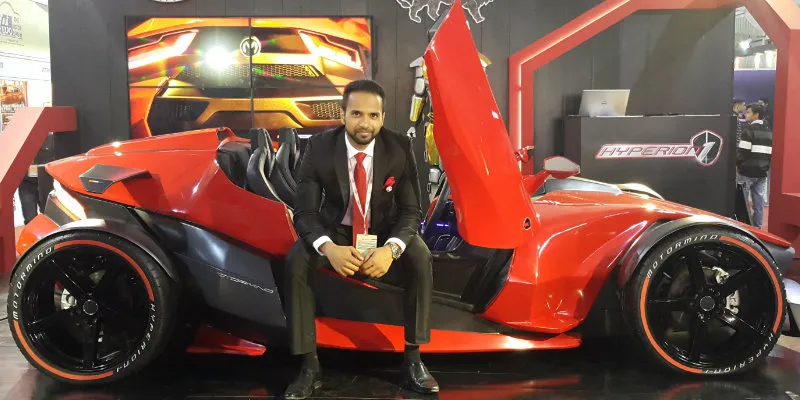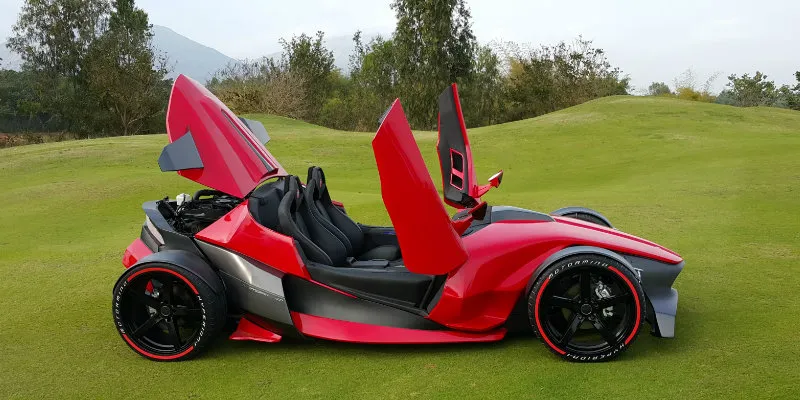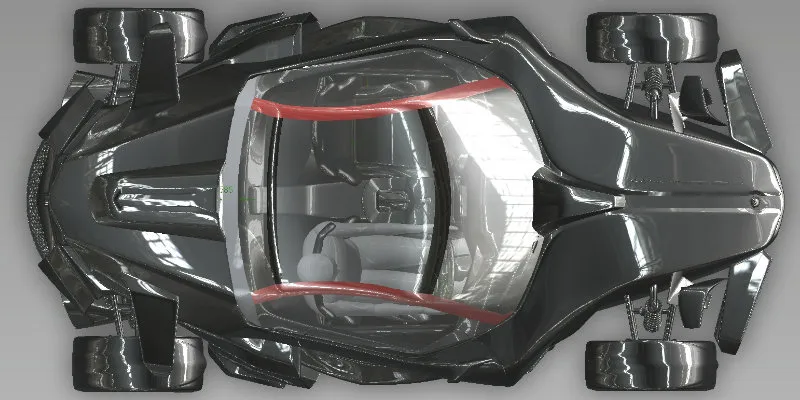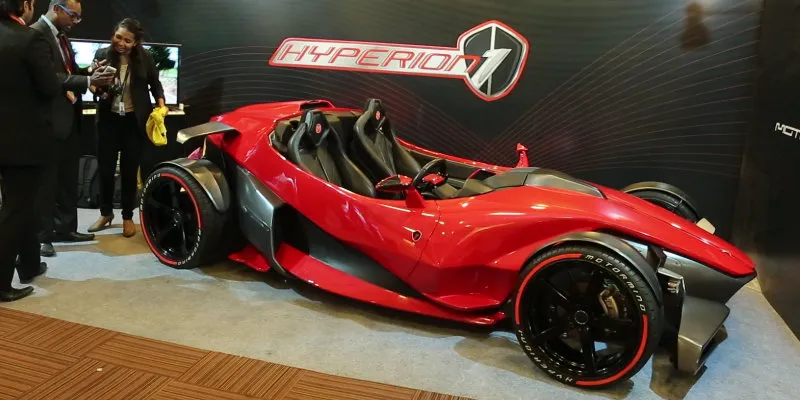Meet Bengaluru's Shahid Haq who aims to give Ferrari a run for its money
“Whatever your goal is, your mind will find a way for it,” says 33-year-old Shahid Haq, CEO and Chief Designer of Motormind Automotive Designs.
YourStory caught up with Shahid at the Make in India - Karnataka conference held in Bengaluru recently, where Motormind was an exhibitor.
Shahid set his mind to the goal very early in life. When he was 13, he dreamt of building a small car using a two-wheeler’s engine. He even tried building one at the age of 15, but did not see much success. Since then the passion for building a car fuelled his efforts on a carefully orchestrated journey towards achieving his dream.

He showed a flair for sketching and painting from an early age and thus there was a natural progression towards automotive design. Born in Kerala and brought up in Bengaluru, Shahid did his BE in Mechanical Engineering from R.V. College of Engineering, followed by an MSc in Automotive Engineering. He went on to pursue higher education in Art and Design and obtained a degree in Transportation Design from Coventry School of Art and Design, United Kingdom. He then spent some time working at a body shop in Gaydon, Warwickshire. Says Shahid,
The embellishments at the workshop and how it looked was enough to spark a fire and fuelled my dreams of owning my own workshop and building my own car some day in the future.”
Revving up
Shahid launched Motormind Automotive Designs in 2010, which specialises in automotive styling kits, body and paint, car foil, customisation, concept designing and 3-D modelling, design consultancy and prototyping.
His years of perseverance, passion and dedicated labour culminated in Hyperion 1, a supercar that took shape in the Motormind garage, built by a team of six people. The car was displayed at Delhi Auto Expo 2016, where it was one of the major attractions.
With Shahid's fascination for Formula One cars, Hyperion 1 is an inspired blend of the famous race car's style and that of a regular roadster.

“Hyperion 1 was built in my 3,000-sqft workshop with limited resources and a small team that I put together. My conservative approach applied here as well; everything was locally sourced, nothing was imported or outsourced, nor did I collaborate with anyone else to develop this. I had a team of engineering student interns to help me develop the CAD (computer aided design) model of the chassis based on my requirements,” says Shahid.
Before starting on the prototype, Shahid visualised the design through CAD. All the data was extracted from 3D CAD model to begin the prototyping, using manual and handcrafted methods. This helped him maintain the desired form and proportion. Sections from the 3D models were extracted and lined up to form a buck for the body of the vehicle, following which a mould was taken and fibre-reinforced plastic (FRP) panels were cast.
The car has scissor doors and wings, detachable hardtop roof similar to a fighter jet's cockpit canopy, air ducts that channel cold air into the engine bay (which is made up of composite material and is electrically powered).

A self-funded project
Shahid has poured his savings of Rs 15 lakh into building Hyperion, calling it a calculated risk. It is not an easy task being a one-man army during the initial days and finding and training skilled labour to do quality work.
But using homegrown materials helped cut down the cost. The entire chassis (space frame) was built in-house to suit the exterior design. The body of the car was also built in-house including all the FRP composites with some elements in carbon fibre. Most of the components were handcrafted and locally sourced from Bengaluru markets. Everything, except for the engine, wheels and tyres were procured from trusted suppliers and vendors.
The working prototype of the car was officially launched last year at the Delhi Auto Expo 2016 and the price of the car would fall in the bracket of Rs 40-50 lakh, depending on the level of customisation. Motormind aims to expand in the next 2-3 years to get to a better production process. Shahid says that in the next year and a half, the car will be ready for sale.

The startup will also look into the process of getting the car certified or homologated for road worthiness and will seek funding to carry on. It aims to produce 15-20 track cars in the next one and a half years and produce an electric version of the Hyperion with the funds generated from the first set of cars.
Website: Motormind Automotive Designs







